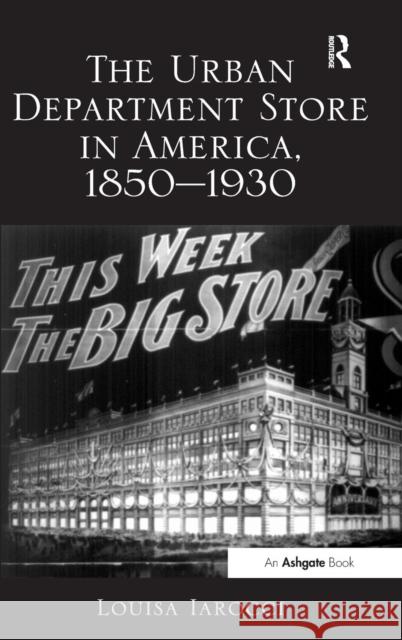The Urban Department Store in America, 1850-1930 » książka
The Urban Department Store in America, 1850-1930
ISBN-13: 9781409447436 / Angielski / Twarda / 2014 / 258 str.
The Urban Department Store in America, 1850-1930
ISBN-13: 9781409447436 / Angielski / Twarda / 2014 / 258 str.
(netto: 718,58 VAT: 5%)
Najniższa cena z 30 dni: 654,86
ok. 16-18 dni roboczych.
Darmowa dostawa!
In the late nineteenth century, the urban department store arose as a built artifact and as a social institution in the United States. While the physical building type is the foundation of this comprehensive architectural study, Louisa Iarocci reaches beyond the analysis of the bricks and mortar to reconsider how the a spaces of selling' were culturally-produced spaces, as well as the product of interrelated economic, social, technological and aesthetic forces. The agenda of the book is three-fold; to address the lack of a comprehensive architectural study of the nineteenth century department store in the United States; to expand the analysis of the commercial city as a built and represented entity; and to continue recent scholarly efforts that seek to understand commercial space as a historically specific and a conceptually perceived construct. The Urban Department Store in America, 1850-1930 acts as a corrective to a current imbalance in the historiography of this retailing institution that tends to privilege its role as an autonomous a modern' building type. Instead, Iarocci documents the development of the department store as an urban institution that grew out of the built space of the city and the lived spaces of its occupants.











